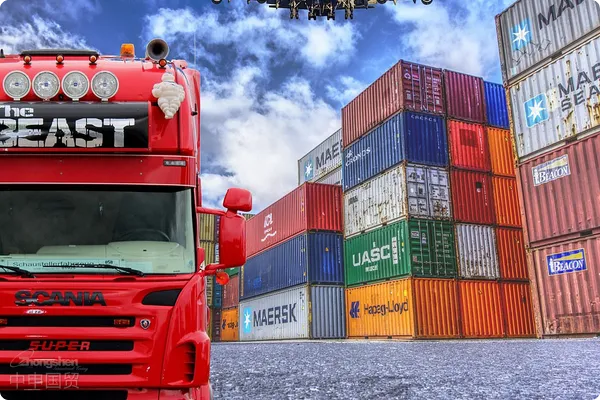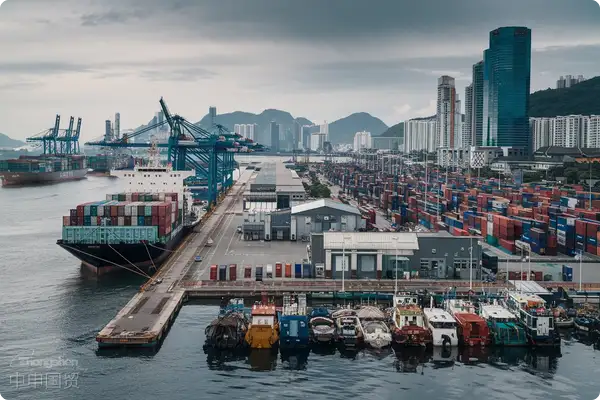- Shanghai Zhongshen International Trade Co., Ltd. - Two decades of trade agency expertise.
- Service Hotline: 139 1787 2118

In the era of globalization,foreign tradehas become a critical aspect of business development. However, foreign trade work involves a wide range of knowledge and skills, requiring professionals to possess comprehensive expertise. Understanding and mastering these key skills can help you stand out in the fiercely competitive international market.
Foreign trade work encompasses a broad spectrum of knowledge areas. Below are some key knowledge points and skills that foreign trade professionals need to master:
Customs declaration and customs affairs
- Customs declaration data: Master information such as the gross weight, net weight, volume, and quantity of goods, and understand the domestic origin of goods.
- HS Code: Familiarize with the Harmonized System Code (HS Code) to ensure correct classification of goods.
- Customs Declaration Process: Understand the process of filling out and submitting customs declarations, and be aware of the differences between electronic and manual customs declarations.
- Inspection and quarantine: Understandimport and exportthe inspection and quarantine requirements for goods, and prepare necessary documents such as health certificates and phytosanitary certificates.
Value-added tax and invoicing
- VAT invoice: Differentiate between general VAT invoices and special VAT invoices, and understand the handling of invoicing, certification, deduction, cancellation, and red invoices (refund invoices).
- Tax rates and taxpayer typesUnderstand the differences between small-scale taxpayers and general taxpayers, as well as the applicable tax rates.
- Taxation Policies: Familiarize withExport Drawbackpolicies, master the tax refund rates and procedures.
Banking and foreign exchange
- International Settlement Methods: Understand the advantages, disadvantages, and risks of settlement methods such as Telegraphic Transfer (T/T),L/CLetter of Credit (L/C), and Collection (D/P and D/A).
- SWIFT code: Familiarize with SWIFT codes between banks to ensure the accuracy of international remittances.
- Cross - border RMB settlement: Understand the advantages and procedures of cross-border RMB settlement.
- Exchange Rate Management: Master foreign exchange risk management and understand tools such as forward exchange contracts and currency swaps.
Freight forwarding and logistics
- Freight Forwarder Selection: Evaluate the credibility and service quality of freight forwarders, and understand the division of responsibilities under trade terms such as FOB, CIF, and EXW.
- Transportation method: Familiarize withMaritime Transportation,Air Transportation, land transport, and multimodal transport, as well as their advantages, disadvantages, and applicable scenarios.
- Designated Freight Forwarder Handling: Understand how to handle customer-designated freight forwarders to avoid potential risks.
- Logistics Costs: Master the composition and standards of various costs such as freight, warehousing fees, customs clearance fees, and insurance premiums.
Certifications and certificates
- It is recommended to verify through the following methods:Technical data: Understand different types of certificates of origin such as FORM A, FORM E, and ordinary certificates of origin.
- Certification Requirements: Master the certification requirements for goods in different countries, such as CE certification, FDA certification, and SGS testing.
- Embassy Certification and CCPIT Certification: Understand which documents require certification, as well as the certification process and fees.
Government agencies and legal regulations
- Customs and Tax Communication: Understand how to interact with government agencies such as customs, tax authorities, the State Administration of Foreign Exchange, and the Commodity Inspection Bureau to handle related matters.
- Policies and Regulations: Familiarize with international trade-related laws and regulations, such as the International Commercial Terms (Incoterms) and the United Nations Convention on Contracts for the International Sale of Goods (CISG).
Letters of credit and trade finance
- Letter of Credit Operations: Master the processes of issuing, advising, amending, presenting documents, and settling letters of credit, and understand common soft clauses.
- Trade Financing: Understand trade financing tools such as export credit insurance, packing loans, and factoring.
- Fee StandardsFamiliarize with fee standards such as letter of credit notification fees and discrepancy charges.
Risk management and emergency handling
- Trade RisksIdentify and manage credit risks, exchange rate risks, shipping risks, policy risks, etc.
- Dispute ResolutionUnderstand how to handle trade disputes and conflicts, resorting to arbitration or legal means when necessary.
- Client CommunicationCommunicate effectively and promptly coordinate to address order changes, delivery delays, and other issues.
Industry knowledge and market research
- Market ResearchConduct target market research to understand market demand, competition, and customer preferences.
- Industry TrendsStay updated on industry trends and policy changes, adjusting business strategies in a timely manner.
Professional skill enhancement
- Language ProficiencyEnhance foreign language skills, particularly in listening, speaking, reading, and writing in English.
- Information TechnologyBe proficient in common office software, ERP systems, and import-export management systems to improve work efficiency.
Summary
Foreign trade work requires the comprehensive application of various knowledge and skills. Continuous learning and experience accumulation, along with leveraging various resources and tools, can help foreign trade professionals better tackle challenges, enhance business capabilities, and promote enterprise development. We hope this article provides valuable insights to help you achieve greater success in the foreign trade industry. If you need further professional support, we are at your service.
Related Recommendations
Learn
Contact Us
Email: service@sh-zhongshen.com
Related Recommendations
Contact via WeChat

? 2025. All Rights Reserved. Shanghai ICP No. 2023007705-2  PSB Record: Shanghai No.31011502009912
PSB Record: Shanghai No.31011502009912







